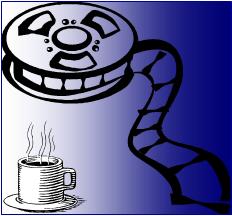

|
 |
The Boxer ______ 8/10
|
Please go to the new Coffee Coaster site implemented more gracefully in Wordpress. This page: http://brianrwright.com/CoffeeCoasterBlog/?p=6764 |
Daniel Day-Lewis ... Danny Flynn
Emily Watson ... Maggie
Brian Cox ... Joe Hamill
Gerard McSorley ... Harry
Ken Stott ... Ike Weir
Danny: I'm not a killer, Maggie, but this place makes me want to kill.
A pleasant discovery, for some reason not a major work that many people know of in the Daniel Day-Lewis oeuvre, which includes:
A couple of these he won Oscars for and for others he was nominated, for Last of the Mohicans I believe he won an award for cross-country running. :) (And it's still one of my top 10.) As in the first three in the list, the movie has to do with Ireland, in this case the IRA (Irish Republican Army) and one individual Danny Flynn. A promising young boxer, at 18 Danny had some role in the IRA that landed him in jail, where they kept him for 14 years because he wouldn't inform on anyone.
He's now returned to the streets of Belfast where IRA leader Joe Hamill (Brian Cox) is busying himself in negotiations to get a release of prisoners in exchange for peace with the British... after nearly 30 years of the Troubles. Hamill is also the father of Danny's girl friend Maggie (Emily Watson), who was 14 when Danny was sent to prison. She married. and now her husband is in jail. There's definitely still a spark between them, but there's a serious taboo on taking up with the wife of an IRA man, especially if he's in prison.
Complicating Danny's reentry process is a hotheaded lieutenant of Hamill's named Harry (Gerard McSorley) who hates virtually everyone as much as he hates the Brits. He wants to upend the peace hopes of Hamill and make sure Danny gets toasted for his obvious, though restrained, attentions toward Maggie. If ever there's a case of a bad apple causing persistent travail for the barrel, this is it; we get an authentic feel for the nature of the Troubles, the challenges any citizen of Belfast—Protestant or Catholic, pro-Brit or anti-Brit—faces.
Danny has never been comfortable with the extremists on his side, and boxing for him, especially during the long prison term, is a way of finding peace within himself
that's missing on the outside. When he returns to the neighborhood, Danny inadvertently locates his old boxing coach and restores a training facility/ring... making it a "secular" operation, meaning open for Protestants and Catholics. That, and the fact that Danny has managed to find and destroy a bag full of Harry's plastic explosives, really pisses Harry off.
So that's the setup, the conflict. One sees in Danny's boxing standards and in his standards regarding Maggie a sensitive strength. Same with Maggie toward him; they realize they're no longer teenagers and any rekindling of the romance will have serious consequences. It's sad, but they're trapped by the past and by the decisions they've both made; further Maggie has a boy who as most boys picks up the prejudices and passions of the leader-males in his environment. How they care for each other under the circumstances is quite poetic. Roger Ebert expresses it well in his review:
What's fascinating is the delicacy of the relationship between Maggie and Danny. Played by two actors who have obviously given a lot of thought to the characters, they know that love is not always the most important thing in the world, that grand gestures can be futile ones, that more important things are at stake than their own gratification, that perhaps in the times they live in romance is not possible. And yet they hunger. Day-Lewis and Watson (from Breaking the Waves) are smart actors playing smart people; when they make reckless gestures, it is from despair or nihilism, not stupidity.
In general, well say 50% of the time, I find agreement with Roger Ebert in his evaluations of important movies, and his review of The Boxer is close to my own opinion (and to insights that otherwise I would not have had)... all the way until the end where Ebert makes a point about the movie's weakness:
The film's weakness is in its ambition: It covers too much ground. Perhaps—I hate to say it—the boxing material is unnecessary, and if the film has focused only on the newly released prisoner, his dangerous love and the crisis in IRA politics, it might have been cleaner and stronger. There are three fights in the film, and the outcome of all three is really just a distraction from the much more important struggles going on outside the ring.
Well, as much as I agree the main story of the movie has to do with the issues of peace and love, what the principal character does for a living— and the integrity with which he does it—is vital. Boxing, as any grueling sport, is after all a metaphor for the struggles of life. The fight in London, which Danny has to take for income, is a telling one. I won't give it away, but he acts "civilized"... to the detriment of his immediate financial self-interest.
As a boxer he has a reason to rebuild a life around a community-centered activity, the only one he knows. It's hard to imagine how the ultimate dramatic quality would be served were Danny a construction worker or a bartender or having virtually any other occupation. Then you have the metaphor by contrast: boxing is a warlike activity and ostensibly consistent with the conflict of the Troubles... yet it is also a supreme discipline, done well, and a perfect substitute for war where (some fools and users say) honor and greatness can be achieved.
I say bring on the surrogacies of war, bring on the NFL, college football, hockey, baseball, basketball, even "ultimate fighting"—nah, just kidding about UFC, simply disgusting and boring—because they do in fact represent peace. There is honor in them, as there is in peace. In war, the only honor is bought at the price of death and mayhem. No, I don't want to get all sentimental about boxing, but it sure beats war... and someday bodies can be enhanced so all damage can be repaired.
In the movie, Daniel Day-Lewis creates an admirable man, a hero, even a man who through his profession contributes to peace and love. It's a great role and it's a great, realistic character study. Emily Watson as the woman who truly knows her "place" and Brian Cox struggling with his own demons as Joe Hamill... both are marvelous.
Anyway, good flick and you'll come away more convinced than ever that war (and populist terror and state terror) are serious screwups, perhaps even gaining an inkling of what's behind them, how "We" can opt out.
###
Law Enforcement Against Prohibition

 |
 |
|||
| |